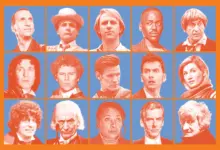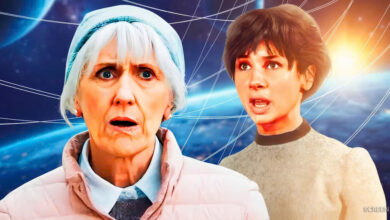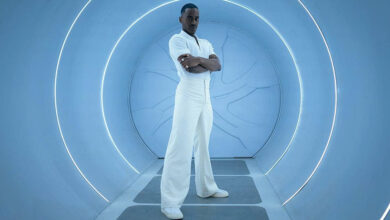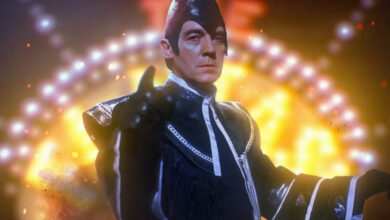Doctor Who: A Look Back at Peter Capaldi’s Underrated 12th Doctor Run
We’re looking back at Peter Capaldi’s run on Doctor Who – Steven Moffat’s last swing at writing a classic and his idea of an ultimate Doctor.
Article Summary
- Peter Capaldi’s Twelfth Doctor celebrated for his nuanced and layered portrayal in Doctor Who.
- Steven Moffat aimed to create a classic, complex character with Capaldi’s older, grandfatherly Doctor.
- Capaldi’s tenure saw innovative scripts exploring power, privilege, and complex relationships.
- Despite being underappreciated, Capaldi’s era was loved for its ambitious storytelling and character depth.
With all the debate over what makes a good or bad Doctor Who, it’s worth looking back at Peter Capaldi’s run as the Twelfth Doctor. He and Jodie Whittaker are the most underrated and underappreciated runs in the modern revival era. His was also the most experimental era during Steven Moffat’s final three years as showrunner.
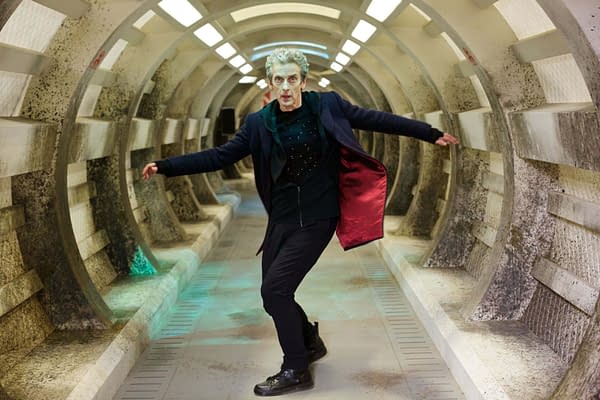
Steven Moffat’s Last Stab at a “Classic” Doctor Who
Out of all the actors to play the Doctor, Capaldi was the biggest uberfan of the show, more than David Tennant, who was already a massive geek all his life. Capaldi was around to have seen the original episodes in the 1960s on the first broadcast and wrote fan letters to the BBC, participating in the earliest fandom for the show. He had a prolific career as an actor since the early 1980s with his movie debut in Local Hero and moved between movies, TV and the theatre, even winning an Oscar for a short film he directed. By the time he was cast in Doctor Who, he had reached a career-high in The Thick of It as Malcolm Tucker, a terrifying, foul-mouthed Machiavellian political spin doctor who had the whole party and government in his hands. Instead of casting a young, sexy actor like Tennant or Matt Smith, Moffat wanted to write a classic, older, grandfatherly figure to hark back to the show’s roots. The Twelfth wasn’t immediately lovable. He was prickly and harsh like William Hartnell could be. He had rages like Colin Baker’s Sixth. He had the Second and Fourth Doctor’s wit and oddball sense of humour, the Fifth Doctor’s (Peter Davison) earnestness, but as he went on, he also infused the character with an old man’s melancholy that Matt Smith’s Doctor often displayed. He really was Moffat’s Ultimate Doctor.
Moffat’s Most Ambitious Creative Swings
Capaldi’s three series featured some of Moffat’s most ambitious and nuanced writing. Some of Moffat’s stories were the finest in Science Fiction and drama. Capaldi was practically a different character in each season. In his first, he was prickly and uncertain, even outright unlikable in places when Moffat openly questioned the power and privilege the Doctor often commanded implicitly. His second series was an allegory for a man’s late-life crisis in his relationship with a younger woman as the Doctor and Clara’s (Jenna Coleman) relationship becomes increasingly enmeshed and dangerous. It was in his third and final season that he became more fully a classic Doctor, a grandfatherly figure traveling time and space with a young companion without the dubious sexual tension, with a truly poignant sendoff at the end of that run.
Capaldi is underappreciated because many female fans stopped watching because he wasn’t a sexy young actor for them to treat as their internet boyfriend. That was when the series’ ratings began to dip, though children continued to love the show. It’s an interesting sign of where the TV viewership is and what constitutes a winning formula for attracting young female viewers for a show meant for the whole family but also dependent on worldwide fandom and shipping for its continued success.
